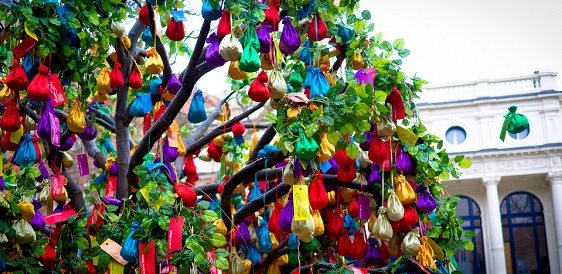
March 13, 2014; SFGate, “The Tech Chronicles”
“As seen by the participants, philanthropy is broadly envisioned as the act of giving with engagement and commitment in ways that enhance society, support the community, and help prepare the next generations of leaders and responsible citizens. Conscious engagement requires donors to expand their focus beyond the short-term results of their giving to include attention to the sustainability of the programs or organizations they are supporting.”
A very beautiful and narrative-based report on Chinese-American philanthropy was released yesterday by the Silicon Valley Community Foundation. Based on 32 in-depth interviews with Chinese-American Philanthropists in the San Francisco Bay Area, the study provides a guided tour of the philanthropic sensibilities of the donors.
“I do fund [organization] in San Francisco because my parents were beneficiaries of its services. They would not have been able to leave Chinatown without [organization]’s support.”
Sign up for our free newsletters
Subscribe to NPQ's newsletters to have our top stories delivered directly to your inbox.
By signing up, you agree to our privacy policy and terms of use, and to receive messages from NPQ and our partners.
“I would not be where I am today if I had not come to America. If they had not accepted me to [university], I would not have had the opportunity. It’s just a matter of—in my mind—pure fairness. You get a break, you better remember where it came from.”
Among other things, the study found that while first-generation immigrants tend to pass their wealth along to family, later generations do give philanthropically to education, to causes in their home countries, to organizations that have helped them, and to the arts. Their giving is guided by gratitude and a sense of obligation.
But if you have not heard much about such giving, there is a reason. According to the Silicon Valley Community Foundation’s Diane Lai, “The discussion of money is a very private conversation.” The study found that displaying signs of wealth, even when it is being given away, is considered inappropriate. This makes the community’s philanthropic engagement difficult to see and gauge.
“I figure it’s in the essence of the Buddhist, I would say Chinese or Taiwanese culture is, the whole religion is all about giving. I was born and raised in a Buddhist family, and so I would say it became natural. It doesn’t matter if people make a lot of money or not, and money is only one form of the giving, and is about your heart and you giving your time, and efforts, so the whole religion is about giving. It becomes second nature.”
—Ruth McCambridge













